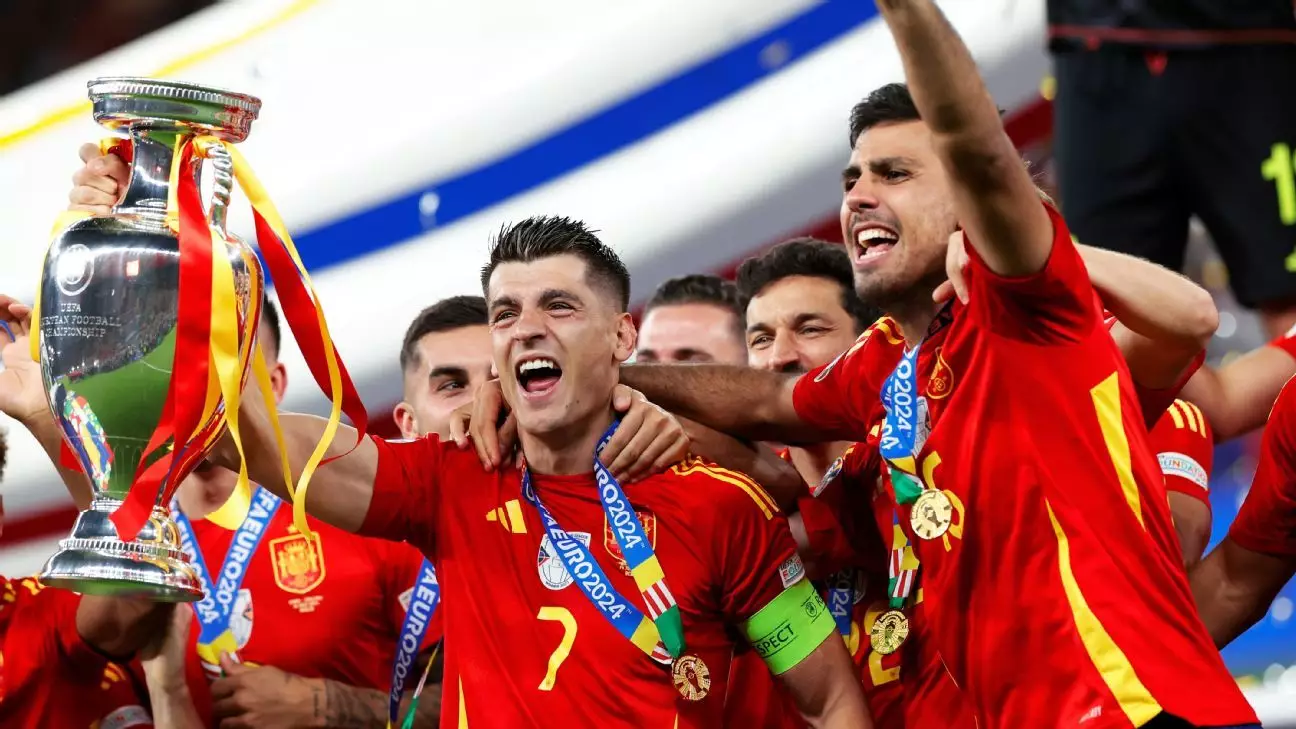Spain’s ambitions to stage the 2030 FIFA World Cup are spiraling into uncertainty due to a leadership vacuum within its football federation. National coach Luis de la Fuente has expressed grave concerns regarding the ongoing situation, particularly as the Spanish Football Federation (RFEF) has yet to appoint a new president following the suspension of Pedro Rocha in July for serious misconduct. In a crucial period leading up to FIFA’s decision on December 11, the urgency to resolve this issue cannot be overstated. The federation’s lack of direction threatens to jeopardize Spain’s position as one of the main hosts alongside Portugal and Morocco.
De la Fuente’s apprehensions reflect a larger fear within the Spanish football community. The coach articulated a fundamental truth about the interconnectedness of football governance and national pride: “How can we not be concerned?” With the eyes of the football world bearing down on Spain, the stakes are high not just for the sport but also for the country’s economy and international reputation. The prospect of being stripped of hosting rights is catastrophic, not merely as a sporting event but as a symbol of national competence. Football is integral to Spain’s cultural identity, and any disruption at this level threatens to unravel both public support and investment in the game.
FIFA’s unequivocal demand for a new leadership structure within the RFEF to be established within three months adds a layer of pressure. Given FIFA’s historical stance against governmental interference in football federations, the situation places an additional burden on the RFEF to act swiftly and judiciously. This urgency suggests that FIFA is not only keen on maintaining political neutrality but also committed to ensuring that host countries have stable and effective leadership. Without this stabilizing factor, the very foundations of hosting a global event like the World Cup become increasingly precarious.
As Spain prepares for the upcoming Nations League matches against Denmark and Serbia, De la Fuente’s squad announcement serves another layer of importance. Notably absent will be key midfielder Rodri, sidelined by a severe ACL injury. De la Fuente remains hopeful, emphasizing Rodri’s resilience and character, asserting, “He has an incredible spirit.” The loss of such a pivotal player is a blow to Spain, but it also invites discussions about future squad strategies and formations.
Ultimately, the precarious situation Spain finds itself in calls for unity among stakeholders: the football federation, the government, and the players. De la Fuente’s comments resonate deeply within the larger narrative of Spain’s footballing destiny. The urgency for a new RFEF president underscores the need for swift action and effective governance. The looming December 11 date isn’t merely a deadline; it’s a critical juncture for Spain to solidify its future in the world of international football. Only through cohesive and decisive leadership can Spain ensure its rightful place on the global stage, mitigating the risks that currently threaten to unravel its hosting aspirations.

